Address
304 North Cardinal
St. Dorchester Center, MA 02124
Work Hours
Monday to Friday: 7AM - 7PM
Weekend: 10AM - 5PM
Address
304 North Cardinal
St. Dorchester Center, MA 02124
Work Hours
Monday to Friday: 7AM - 7PM
Weekend: 10AM - 5PM
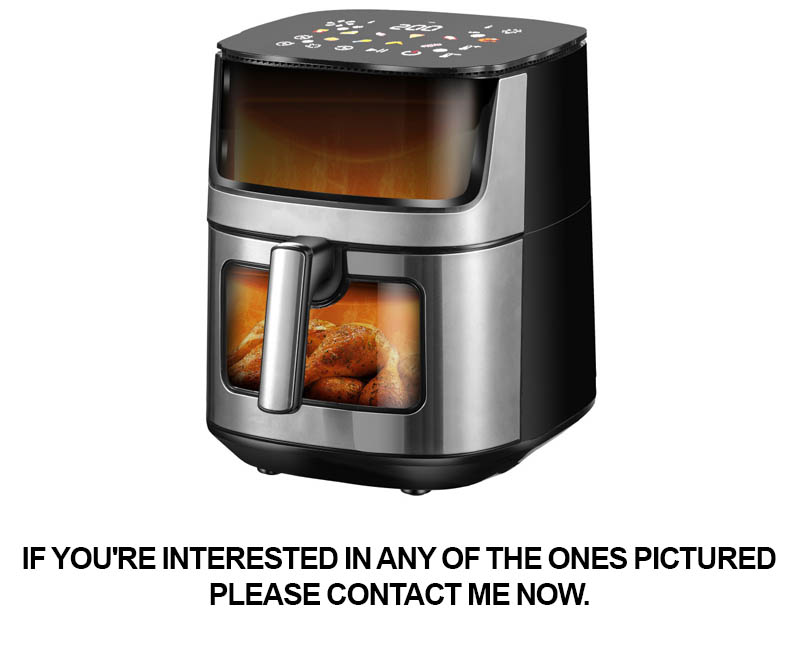
Navigating the world of air fryer factories can be a daunting task, especially when you’re on the hunt for a reliable manufacturer that can deliver high-quality products. With so many options out there, it’s crucial to understand the nuances of the market and the factors that truly matter when selecting a factory. Whether you’re a business owner looking to expand your product line or a consumer seeking the best in kitchen appliances, this guide will shed light on the key aspects to consider, from quality assurance to customer feedback and the importance of staying abreast of industry trends. Let’s dive into the essentials of finding a trustworthy air fryer factory.
In the bustling world of kitchen appliances, the air fryer has emerged as a favorite for its ability to offer healthier cooking options without compromising on taste. As demand for these innovative devices soars, the need for a reliable air fryer factory becomes paramount. A trustworthy factory can make all the difference in the quality, safety, and overall satisfaction of the end product. Let’s delve into why this is so crucial.
Firstly, the quality of the air fryer directly impacts the user’s experience. A reliable factory ensures that each unit is crafted with precision, using high-quality materials that stand the test of time. This not only guarantees a longer lifespan for the appliance but also ensures that consumers can enjoy their favorite fried foods with minimal oil, aligning with current health trends.
Secondly, safety is a non-negotiable aspect when it comes to kitchen appliances. A reputable factory adheres to stringent safety standards, which are essential for preventing accidents and ensuring that the air fryer operates smoothly without any risk of electrical hazards. Consumers can have peace of mind knowing that their appliance has been designed and manufactured with their safety in mind.
Moreover, a reliable air fryer factory is committed to innovation. They stay ahead of the curve by incorporating the latest technology and design trends into their products. This means that customers not only get a functional appliance but also one that is aesthetically pleasing and capable of meeting their modern culinary needs.
Consistency in product quality is another critical factor. A reputable factory maintains high standards throughout the production process, from sourcing raw materials to the final assembly. This consistency ensures that every air fryer that leaves the factory is of the same high caliber, which is essential for building a brand’s reputation and customer loyalty.
The reputation of the factory itself speaks volumes. A factory with a history of producing top-notch air fryers is more likely to have a robust quality control system in place. This means that they are less likely to have issues with defects or recalls, which can be costly and damaging to both the factory and its customers.
In addition to quality and safety, a reliable air fryer factory also offers excellent customer service. They understand that their customers are not just buying a product but an experience. This includes providing clear instructions, helpful troubleshooting guides, and responsive customer support. When something goes wrong, a reliable factory is there to rectify the issue promptly.
Another aspect to consider is the factory’s ability to scale production. As demand for air fryers continues to grow, a factory that can adapt and increase production without compromising on quality is invaluable. This flexibility ensures that the factory can meet the needs of both new and existing customers, even during peak sales periods.
Lastly, a reliable air fryer factory is environmentally conscious. They prioritize sustainable practices in their operations, from energy-efficient manufacturing processes to responsible waste management. This not only benefits the environment but also resonates with consumers who are increasingly aware of their ecological footprint.
In conclusion, the importance of a reliable air fryer factory cannot be overstated. It’s the cornerstone of a successful product, ensuring that consumers receive a high-quality, safe, and innovative appliance. A factory that upholds these standards not only enhances the user experience but also contributes to the growth and sustainability of the entire industry. When selecting an air fryer, choosing one from a reputable factory is a decision that pays off in the long run.

Navigating the vast landscape of the air fryer market can be both exciting and daunting. With numerous manufacturers vying for attention, understanding the key factors that can guide your selection is crucial. Here are some pivotal aspects to consider:
Product Range and VarietyThe market for air fryers is diverse, ranging from compact countertop models to larger, more commercial-grade units. Assess the variety a factory offers; a wide range indicates they cater to different consumer needs and preferences.
Innovation and TechnologyAir fryer technology is continuously evolving. Look for a factory that invests in research and development, offering cutting-edge features like smart technology, adjustable temperature controls, and energy efficiency. These advancements can greatly enhance the user experience.
Quality MaterialsThe quality of materials used in the manufacturing process directly impacts the durability and performance of the air fryer. Ensure the factory you choose uses high-grade materials that are not only robust but also safe for food contact.
Safety StandardsSafety should always be a top priority. Check if the factory adheres to international safety standards, such as those set by the Underwriters Laboratories (UL) or the European Committee for Electrotechnical Standardization (CENELEC).
Certifications and ComplianceA reputable factory will have certifications that vouch for their compliance with industry regulations. Look for certifications such as CE, RoHS, and FDA approval, which indicate that the products meet specific health, safety, and environmental standards.
Design and User ExperienceThe design of an air fryer can significantly affect its appeal and ease of use. Consider a factory that not only focuses on functionality but also on aesthetics and user-friendly interfaces, including intuitive controls and clear instruction manuals.
Warranty and After-Sales ServiceA strong warranty and reliable after-sales service are indicators of a manufacturer’s confidence in their product. Ensure the factory offers a comprehensive warranty and has a customer service team ready to assist with any issues that may arise post-purchase.
Market ReputationThe reputation of a factory within the industry can speak volumes about its reliability. Look for reviews, testimonials, and case studies that showcase the factory’s history of delivering quality air fryers. A positive track record can be a significant trust signal.
Environmental ResponsibilityIn today’s world, sustainability is a critical factor. Consider factories that are committed to environmental responsibility, using eco-friendly materials, and minimizing waste during production.
Supply Chain StabilityA stable supply chain is essential for ensuring a consistent flow of products. Assess the factory’s supply chain to ensure it’s robust and can meet your production needs without delays.
Pricing and Cost-effectivenessWhile cost is a significant consideration, it shouldn’t be the sole focus. Look for a balance between affordability and quality. A factory that offers competitive pricing without compromising on the aforementioned factors is a wise choice.
Customization and ScalabilityIf you’re looking to create a unique product or scale up your operations, consider a factory that offers customization and has the capacity to handle varying production volumes.
Innovation and R&D CapabilitiesAn air fryer factory with a strong focus on innovation and research and development is likely to stay ahead of the curve. They can help you develop new products or improve existing ones.
Industry PartnershipsA factory that collaborates with other industry leaders can bring a wealth of knowledge and resources to the table, offering you a competitive edge.
Long-term RelationshipsLook for a factory that values long-term partnerships. They are more likely to provide consistent support and be flexible in meeting your evolving needs.
Regulatory ComplianceEnsure that the factory is compliant with all relevant local and international regulations, including import/export laws and customs requirements.
Technology IntegrationThe ability to integrate the latest technologies, such as IoT (Internet of Things), can open up new possibilities for your air fryer products, offering features like remote monitoring and predictive maintenance.
Market Trends AnalysisA factory that keeps a pulse on market trends can help you anticipate changes and stay relevant. They should be able to provide insights into consumer behavior and emerging technologies.
By carefully considering these factors, you’ll be better equipped to find a reliable air fryer factory that not only meets your current needs but also has the potential to grow with you as your business expands.
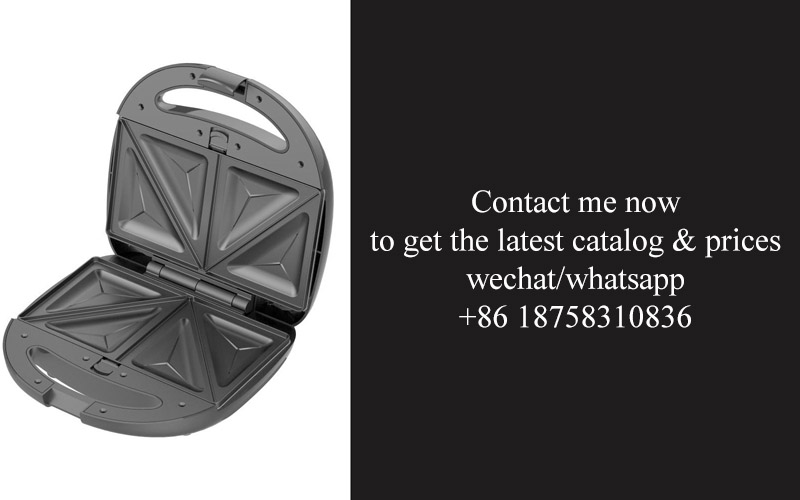
Navigating the complexities of the air fryer market can be daunting, but with the right approach, you can identify a factory that meets your needs and expectations. Here’s a step-by-step guide to researching factory credibility:
Identify Your Requirements: Before you start your search, clearly define what you need from an air fryer factory. Consider factors like production capacity, quality standards, and the specific features or technologies you want in the air fryers.
Seek Industry Recommendations: Reach out to industry experts, suppliers, and even competitors for recommendations. Word-of-mouth can often provide valuable insights into the reliability and reputation of various factories.
Online Search and Directory Checks: Utilize online search engines and trade directories to compile a list of potential air fryer factories. Look for companies with a strong online presence, including a well-maintained website and detailed product information.
Review Factory Profiles and Catalogs: Once you have a list, delve into the profiles and catalogs of these factories. Pay attention to the types of air fryers they offer, their design, and the materials used. This can give you a clue about their expertise and capabilities.
Inspect Factory Certifications: Certifications are a clear indicator of a factory’s adherence to quality and safety standards. Look for certifications like ISO, CE, or UL, which ensure that the factory meets international standards.
Check Customer Testimonials and Case Studies: Genuine testimonials and case studies can provide real-world insights into the factory’s performance. Look for reviews that mention the quality, delivery time, and customer service.
Contact Previous Clients: If possible, reach out to the factory’s previous clients to gather firsthand information about their experiences. Questions about the quality of the products, communication, and after-sales support are crucial.
Visit the Factory: If feasible, schedule a visit to the factory. This allows you to see the operations firsthand and assess the factory’s infrastructure, technology, and workforce. Pay attention to cleanliness, organization, and the level of automation.
Assess Quality Control Measures: A reliable factory will have stringent quality control processes in place. Ask about their testing methods, the frequency of inspections, and how they handle defective products.
Evaluate Production Capabilities: Consider the factory’s production capacity and their ability to scale up or down based on your needs. Also, inquire about their lead times and the flexibility of their production schedules.
Understand the Supply Chain: A robust supply chain is essential for ensuring a consistent flow of quality products. Ask about their sourcing of materials, their relationship with suppliers, and their approach to sustainability.
Consider Logistics and Distribution: The efficiency of the factory’s logistics and distribution network is crucial, especially if you’re looking for international shipping. Look into their shipping options, delivery times, and any potential customs issues.
Negotiate Terms and Conditions: Once you’ve gathered all the necessary information, negotiate terms with the factory. This includes pricing, payment schedules, minimum order quantities, and any additional services they might offer.
Review Legal Agreements: Before finalizing any deal, ensure that all legal agreements are clear and mutually beneficial. Pay attention to clauses regarding warranties, intellectual property, and confidentiality.
Stay Informed Post-Selection: Even after selecting a factory, stay informed about their operations. Regular updates on production progress, quality reports, and customer feedback can help maintain a strong business relationship.
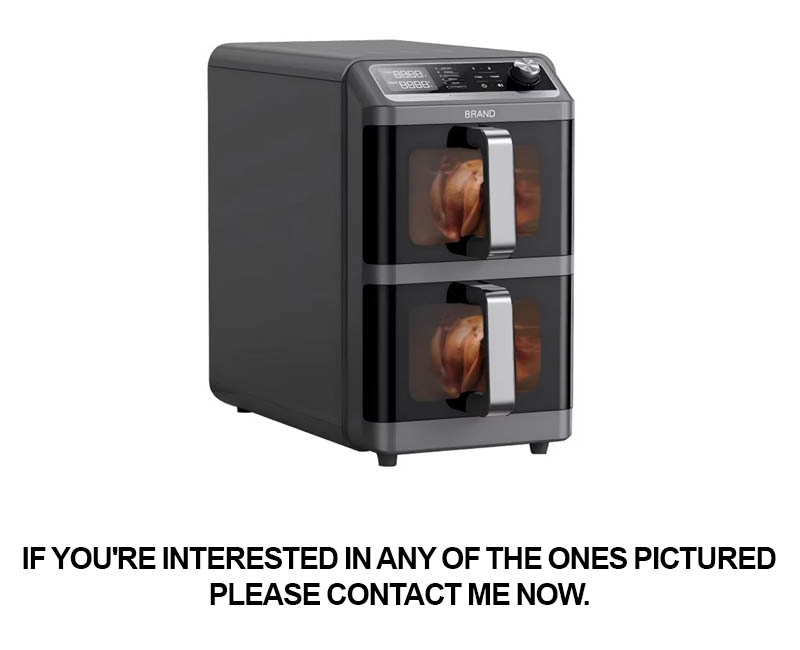
Navigating the world of air fryer production can be daunting, especially when it comes to ensuring quality. Here’s a deep dive into the critical aspects you should consider when looking for a reliable manufacturer:
Material Selection and DurabilityQuality in air fryer production starts with the choice of materials. Look for manufacturers that prioritize high-quality, food-grade stainless steel for the exterior and non-stick coatings that are free from harmful chemicals. The durability of these materials is key, as they’ll be exposed to high temperatures and frequent use.
Thermal Conductivity and Even CookingAn efficient air fryer needs materials that allow for excellent thermal conductivity. This ensures that heat is distributed evenly throughout the cooking chamber, resulting in perfectly cooked food without hotspots. Check if the manufacturer uses advanced heat distribution systems and insulating materials to maintain consistent temperatures.
Safety FeaturesSafety is paramount in kitchen appliances. A reputable factory will incorporate features like automatic shut-off mechanisms, temperature controls, and overheat protection. These safety features not only prevent accidents but also extend the life of the air fryer.
Design and User ExperienceThe design of an air fryer can greatly impact its usability. Look for manufacturers that focus on user-friendly interfaces, intuitive controls, and easy-to-clean components. A well-designed air fryer not only simplifies cooking but also enhances the overall experience.
Testing and Quality ControlBefore a product hits the market, it should undergo rigorous testing. A reliable factory will have a comprehensive quality control process, including performance tests, safety checks, and durability trials. These tests ensure that each air fryer meets the highest standards before it reaches consumers.
Certifications and ComplianceCertifications from recognized bodies such as the Underwriters Laboratories (UL) or the European Conformité Européenne (CE) are a strong indicator of quality. These certifications demonstrate that the air fryer meets specific safety, health, and environmental standards.
Longevity of ComponentsThe longevity of the air fryer’s components is crucial. High-quality components like heating elements, fans, and timers should be durable and resistant to wear and tear. This not only ensures the appliance’s lifespan but also maintains its performance over time.
Customer Feedback and WarrantyPay attention to customer reviews and the warranty offered by the manufacturer. Positive feedback from users can be a good indicator of the product’s quality. Additionally, a robust warranty policy reflects the manufacturer’s confidence in their product’s reliability.
After-Sales ServiceA reliable factory will provide excellent after-sales service, including customer support and spare parts availability. This ensures that if any issues arise, they can be addressed promptly and efficiently.
Innovation and R&DManufacturers who invest in research and development (R&D) are more likely to produce cutting-edge air fryers. Look for factories that continuously innovate and introduce new features or technologies that improve the cooking experience.
Sustainability PracticesIn today’s world, sustainability is a significant factor. Consider manufacturers who use environmentally friendly materials and processes, and who are committed to reducing their carbon footprint.
Factory Visits and InspectionsIf possible, consider visiting the factory to see the production process firsthand. This can give you a better understanding of the quality control measures in place and the overall work environment.
By carefully considering these aspects, you can identify air fryer manufacturers who prioritize quality in their production. This not only ensures that you get a product that performs well but also lasts for years to come.
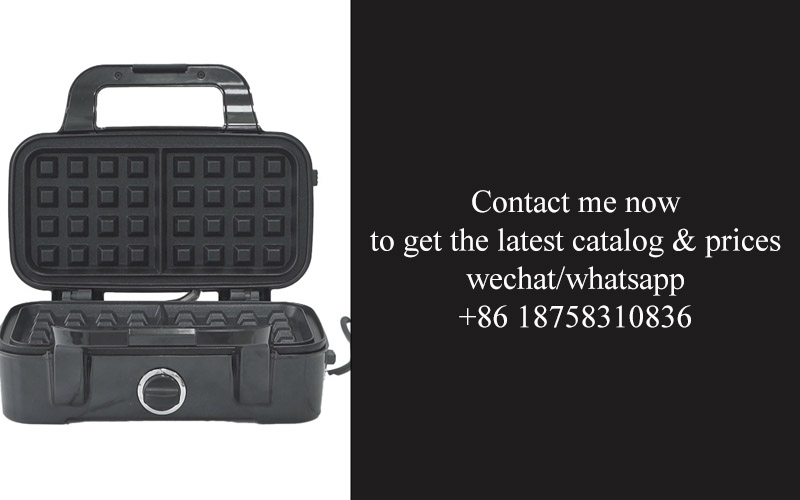
Navigating the maze of factory certifications and standards is crucial when seeking a reliable air fryer manufacturer. Here’s a deep dive into what to look for:
Excellence in SafetyLook for factories that hold certifications like ISO 9001, which ensures a quality management system that focuses on safety. This standard guarantees that the factory adheres to stringent safety protocols, from raw material handling to the final product assembly.
Environmental ResponsibilityAn air fryer factory with ISO 14001 certification demonstrates a commitment to environmental management. This means they are likely to use sustainable practices, reduce waste, and minimize their ecological footprint, which is a significant consideration for today’s eco-conscious consumers.
Energy EfficiencyISO 50001 certification is a sign that the factory is serious about energy efficiency. It shows they have systems in place to monitor, measure, and manage energy consumption, leading to more sustainable operations and potentially lower costs for both the factory and its customers.
Quality ManagementThe ISO 9001 certification, as mentioned, is a must-have for quality management. It ensures that the factory has a robust process in place for inspecting and testing products at various stages of production. This focus on quality control is essential for producing reliable and durable air fryers.
Food SafetyFor a product like an air fryer, which comes into contact with food, BRC (British Retail Consortium) certification is a gold standard. It covers all aspects of food safety from farm to fork, ensuring that the factory maintains high hygiene standards and prevents foodborne illnesses.
Electrical SafetyAn air fryer is an electrical appliance, so CE (Conformité Européenne) certification is a must. This certification signifies that the product meets all the safety, health, and environmental protection requirements of the European Union. It’s also a mark of compliance with the Low Voltage Directive and the Electromagnetic Compatibility Directive.
RoHS ComplianceThe Restriction of Hazardous Substances (RoHS) directive ensures that the air fryer does not contain certain hazardous materials. A factory with RoHS certification is committed to using safer materials and reducing environmental impact.
Global Market AccessFactories with IEC (International Electrotechnical Commission) certification can access global markets with ease. This certification is recognized worldwide and ensures that the factory’s products meet international technical specifications.
Health and Safety StandardsOHSAS 18001 certification focuses on health and safety management systems. This means the factory has a comprehensive approach to preventing workplace accidents and maintaining a safe working environment for its employees.
Social ResponsibilitySocial accountability standards like SA 8000 certification ensure that the factory adheres to ethical practices in its supply chain, including fair labor standards, child labor prohibition, and freedom of association.
Customization and InnovationWhile certifications are important, don’t forget to check for the factory’s ability to customize and innovate. Look for a history of product development and a willingness to adapt to new market trends and customer needs.
Auditing and InspectionsRegular audits and inspections by third-party organizations are a good indicator of a factory’s commitment to maintaining high standards. Ask for details on the frequency and scope of these audits.
Customer FeedbackFinally, consider the feedback from customers who have worked with the factory. Look for consistent praise regarding the quality of the products and the factory’s responsiveness to customer concerns.
By thoroughly examining these certifications and standards, you can gain confidence in the reliability and quality of the air fryer factory you choose to partner with. Remember, these certifications are not just pieces of paper; they represent a factory’s dedication to excellence in every aspect of its operations.

Navigating the factory floor of an air fryer manufacturer is like taking a peek into the heart of modern culinary innovation. The infrastructure and equipment are a testament to the precision and dedication that goes into producing these appliances. Here’s an insight into what to look for:
The layout of a factory is more than just a physical arrangement; it’s a strategic design that ensures efficiency and flow. You’ll notice rows of assembly lines that are meticulously organized, with each station dedicated to a specific task. These lines are often wide enough to accommodate workers moving back and forth with ease, and they’re separated by clear pathways to prevent any clutter or confusion.
One of the most striking aspects of an air fryer factory is the precision machinery. Advanced robotic arms and automated systems are commonplace, performing tasks with a level of accuracy that’s nearly impossible for human hands alone. These robots are often programmed to handle delicate parts, like the fryer baskets, ensuring they are assembled with exacting standards.
The equipment used in the production process is state-of-the-art. From high-speed welding machines to automated testing stations, each piece of machinery is designed to increase productivity without compromising quality. You might find machines that can cut, bend, and form metal parts with pinpoint precision, all within a matter of seconds.
Quality control is another critical component of factory infrastructure. Throughout the production line, you’ll find various inspection points where products are tested for durability, functionality, and safety. These checks are often done by trained technicians using advanced testing equipment, such as thermal imagers and vibration analyzers, to ensure that every air fryer meets stringent quality standards.
The cleanliness of the factory is indicative of the attention to detail and hygiene standards. Factories producing air fryers adhere to strict cleanliness protocols to prevent contamination and ensure that the appliances are safe for consumers. You’ll see rows of stainless steel tables and floors, as well as regular sanitation routines, including the use of high-pressure water sprays and disinfectant solutions.
Energy efficiency is also a priority in modern factories. From the lighting to the heating and cooling systems, everything is designed to minimize energy consumption. LED lighting is standard, providing ample illumination without the need for excessive power. In some cases, renewable energy sources like solar panels are integrated into the factory’s infrastructure, showcasing the manufacturer’s commitment to sustainability.
When it comes to the materials used in air fryer production, the factory you visit should be transparent about the sourcing and composition of these materials. High-quality, food-grade stainless steel is often used for the fryers themselves, as it’s durable, non-reactive, and easy to clean. The factory should be able to provide certifications that the materials meet safety and environmental standards.
Another aspect to consider is the factory’s ability to customize and innovate. Look for signs of a culture that encourages R&D, such as dedicated labs or test kitchens. These areas are where new ideas are developed and tested, leading to improvements in existing products and the creation of new ones.
The training and expertise of the workforce are also crucial. A reputable air fryer factory invests in its employees, providing ongoing training sessions to ensure that the staff are up-to-date with the latest production techniques and safety protocols. This commitment to employee development is a good indicator of the factory’s dedication to quality.
Lastly, the factory’s responsiveness to regulatory changes and industry trends is a sign of its adaptability. As standards evolve and new technologies emerge, a factory that can quickly adapt its processes and products to meet these changes is likely to maintain its position as a leader in the market.
In summary, when inspecting the infrastructure and equipment of an air fryer factory, you’re not just looking at metal and machinery; you’re assessing the entire ecosystem that ensures a high-quality product from start to finish. The right combination of efficient layout, cutting-edge technology, rigorous quality control, and a focus on sustainability and innovation are what set a great factory apart from the rest.
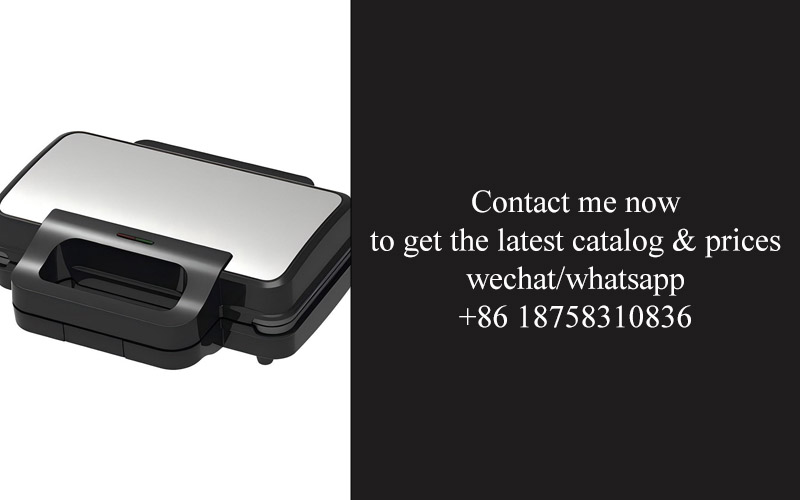
Understanding customer reviews and testimonials is like getting a firsthand look into the real-life experiences of those who have already invested in an air fryer. These insights can be invaluable in making an informed decision about where to source your products. Here’s what you need to consider:
The authenticity of reviews is crucial. Look for platforms where users are encouraged to provide detailed feedback, as this is often a sign of genuine opinions. On social media, for instance, users might share their experiences in more personal and unfiltered ways.
Pay attention to the specifics mentioned in the reviews. Are customers highlighting the durability of the air fryer, its ease of use, or the quality of the food it produces? These details can give you a clear picture of what to expect from the product.
Testimonials from influencers or experts can carry significant weight. When a well-known figure in the culinary world endorses a product, it often speaks volumes about its performance and reliability. Keep an eye out for such endorsements, as they can be a strong indicator of a factory’s commitment to quality.
Consistency in feedback is key. If a factory’s products are consistently praised for their performance, it’s a good sign that they are meeting customer expectations. Conversely, if there’s a pattern of negative feedback, it might be a red flag to investigate further.
The tone of the reviews can also provide insight. Are customers expressing satisfaction and delight, or are there recurring complaints about the same issues? A positive tone generally suggests a satisfied customer base, while a negative or mixed tone might warrant a closer look.
Don’t ignore the length of the reviews. Short, generic comments can sometimes be less informative than those that take the time to detail a user’s experience. Longer reviews often come with more context and can help you understand the nuances of the product’s performance.
It’s also important to consider the diversity of experiences. If a factory’s products are being reviewed by a wide range of customers, from beginners to seasoned chefs, it suggests that the product caters to a broad market. This diversity can be a positive sign for potential buyers.
Look for reviews that mention customer service. How the factory responds to complaints or issues can reflect its commitment to customer satisfaction. Positive feedback about customer service can be a testament to the factory’s dedication to maintaining high standards.
Remember that while online reviews are helpful, they should not be the sole basis for your decision. Consider combining them with other research methods, such as direct inquiries to the factory or visiting trade shows where you can see the products in action.
In conclusion, customer reviews and testimonials are a treasure trove of information that can guide you in choosing a reliable air fryer factory. By analyzing the authenticity, specifics, consistency, tone, length, diversity, and customer service aspects of these reviews, you can gain a comprehensive understanding of what to expect from the products and the company behind them.
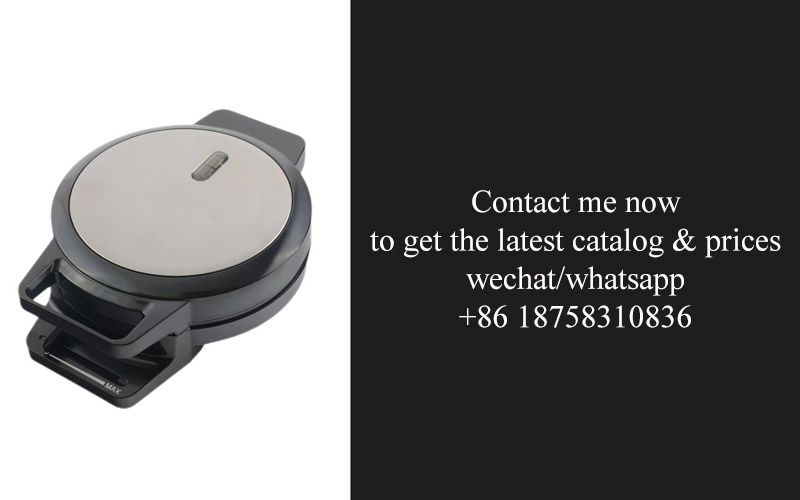
Navigating the world of air fryer pricing can be as complex as understanding the science behind the appliance itself. Here’s a breakdown of how to analyze costs and ensure you’re getting your money’s worth.
Understanding Base PricingThe starting point for any air fryer is its base price. This figure can vary widely, from budget-friendly models that might cost under $50 to premium units that can exceed $200. It’s important to note that while a low price might seem appealing, it doesn’t always guarantee quality or longevity. Conversely, a high price tag doesn’t always equate to superior performance or durability.
Comparing Features and SpecificationsOnce you’ve identified the price range that fits your budget, it’s time to compare features and specifications. More expensive air fryers often come with additional benefits like larger capacities, programmable settings, and advanced technologies like digital displays. However, these features might not be necessary for everyone. Consider what you truly need in an air fryer and avoid paying for unnecessary extras.
Long-Term CostsWhen evaluating the cost of an air fryer, don’t just look at the initial price. Consider the long-term costs, including energy consumption and maintenance. A more energy-efficient model might have a higher upfront cost but could save you money on your electricity bill over time. Additionally, some brands offer better warranties and customer support, which can be a significant cost-saver if you encounter any issues with the appliance.
Value BrandsSome brands are known for offering excellent value for money. These brands often provide a good balance between quality, features, and price. Research which brands are consistently praised for their air fryers and whether they offer any special promotions or discounts that could further enhance the value.
Marketplace DynamicsThe market for air fryers is dynamic, with new models and competitors entering the scene regularly. This means that prices can fluctuate based on supply and demand, as well as seasonal promotions and sales. Keeping an eye on the market can help you find the best deals and avoid overpaying.
Comparing Online and In-Store PricesWhen shopping for an air fryer, it’s common to find different prices online versus in physical stores. This can be due to various factors, including shipping costs, in-store promotions, and the overhead of maintaining a physical location. Always compare prices across different retailers to ensure you’re getting the best deal.
Discounts and PromotionsRetailers often offer discounts, rebates, and promotions to entice customers. Keep an eye out for these opportunities, as they can significantly reduce the cost of your air fryer. Black Friday, Cyber Monday, and end-of-season sales are particularly good times to snag a deal.
Budgeting for Additional AccessoriesAn air fryer might come with a few accessories, but some users prefer to purchase additional items like recipe books, cooking baskets, and temperature probes. Factor in these extra costs when budgeting for your air fryer purchase to ensure you’re not caught off guard by unexpected expenses.
Understanding Warranty and SupportThe value of an air fryer is not just in its immediate purchase price but also in the long-term support and warranty offered by the manufacturer. A strong warranty can save you money in the event of a defect, and excellent customer support can help you troubleshoot issues without the need for costly repairs.
By carefully considering these factors, you can make an informed decision about the cost of your air fryer and ensure that you’re getting the best value for your money. Remember, the most expensive model isn’t always the best choice, and the most affordable one might not meet all your needs. It’s all about finding that sweet spot where quality, features, and price align to give you a satisfying purchase experience.

Navigating the ever-evolving landscape of the kitchen appliance industry, especially for air fryers, it’s crucial to understand how industry trends can shape your factory selection. Trends are more than just fleeting fads; they are indicators of consumer preferences, technological advancements, and market demands. Here’s how these trends can play a significant role in your choice of a factory for air fryer production:
The Shift Towards Healthier Cooking MethodsConsumers today are more health-conscious than ever before. The rise of air fryers as a healthier alternative to traditional deep frying is a testament to this shift. As a factory, keeping up with this trend means focusing on high-quality, energy-efficient air fryers that minimize oil usage while still delivering delicious results. It’s important to select a factory that invests in research and development to stay ahead of these changing preferences.
Energy Efficiency and SustainabilityEnergy-saving and sustainable products are becoming increasingly popular. A factory that prioritizes energy-efficient appliances is likely to be ahead of the curve in terms of both technology and consumer appeal. When evaluating factories, look for those that are committed to sustainable practices, such as using renewable energy sources and recycling materials. These factors not only align with market trends but also contribute to a positive brand image.
Smart Technology IntegrationThe integration of smart technology into kitchen appliances is a growing trend. Air fryers that can be controlled via smartphone apps or connected to smart home systems offer convenience and connectivity. When considering a factory, assess their ability to incorporate smart features into their air fryer designs. A factory that can adapt to this technological shift will be better positioned to produce air fryers that appeal to tech-savvy consumers.
Eco-Friendly MaterialsThe use of eco-friendly materials in product manufacturing is not just a trend but a necessity for many consumers. A factory that uses recycled plastics, biodegradable components, or materials sourced from sustainable sources can attract environmentally conscious buyers. This choice also reflects positively on the factory’s corporate social responsibility (CSR) efforts, making it an attractive partner for brands looking to align with green initiatives.
Global Market ReachThe air fryer market is expanding globally, with different regions having unique preferences and demands. A factory that can cater to these diverse markets is more likely to be successful. When selecting a factory, consider its ability to produce air fryers that meet international standards and certifications. This includes understanding the different safety regulations, voltage requirements, and cultural preferences across various countries.
Customization and PersonalizationPersonalization is key in today’s market. Consumers are looking for products that can be tailored to their specific needs and preferences. A factory that can offer customization options, such as different sizes, colors, and features, can better meet the demands of a varied customer base. This flexibility allows for innovation and keeps the brand competitive.
Rapid InnovationThe kitchen appliance industry is known for its rapid pace of innovation. A factory that is consistently pushing the boundaries with new features, improved performance, and unique designs will be a valuable partner. Look for evidence of a factory’s commitment to innovation, such as a history of patent filings or participation in industry trade shows.
Collaborative RelationshipsBuilding a strong relationship with your factory is crucial. Look for a factory that values collaboration and is open to working closely with you to develop new products and improve existing ones. A factory that encourages feedback and is responsive to your needs will be more likely to produce air fryers that resonate with your target market.
In conclusion, when selecting a factory for air fryer production, it’s essential to consider how well the factory aligns with industry trends. By focusing on health and sustainability, integrating smart technology, using eco-friendly materials, adapting to global markets, offering customization, fostering rapid innovation, and building a collaborative relationship, you can ensure that your factory is not just a producer but a strategic partner in achieving your brand’s goals.
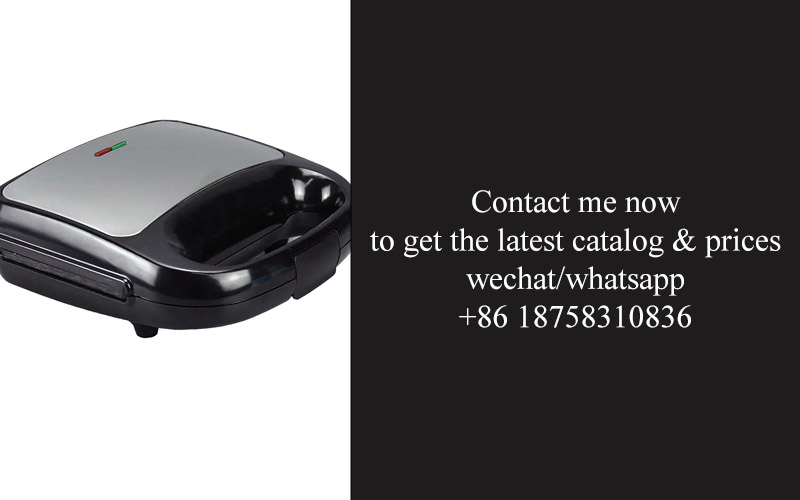
Understanding the latest industry trends is crucial for making informed decisions when selecting an air fryer factory. Staying ahead of the curve can mean the difference between a cutting-edge product and one that quickly becomes outdated. Here are some key trends to consider:
Innovation in Technology: Look for factories that are investing in cutting-edge technology. Automation and robotics are revolutionizing manufacturing, reducing waste and increasing efficiency. Factories with state-of-the-art machinery are likely to produce higher quality products.
Sustainability: The shift towards sustainable practices is a significant trend. Factories that prioritize eco-friendly materials, energy-efficient operations, and waste reduction are not only doing their part for the environment but are also becoming more attractive to consumers and investors alike.
Health and Wellness: As the global population becomes more health-conscious, there’s a growing demand for air fryers that offer healthier alternatives to deep-frying. Factories that focus on producing appliances that use less oil or have healthier cooking options are likely to be at the forefront of this trend.
Smart Kitchen Integration: The integration of smart technology into kitchen appliances is a growing trend. Factories that are capable of producing air fryers with smart features, such as Wi-Fi connectivity, Bluetooth pairing, and smartphone control, are positioning themselves to meet the needs of tech-savvy consumers.
Customization: Personalization is key in today’s market. Factories that offer customization options for air fryers, such as various cooking modes, digital timers, and temperature controls, are catering to consumers who want to tailor their appliances to their specific needs.
Global Supply Chains: The complexities of global supply chains have become a major concern. Factories with strong supply chain management are better equipped to handle disruptions, maintain inventory, and deliver products on time.
Brand Partnerships: Collaborations with renowned brands can lend credibility to a factory. Look for partnerships that enhance the factory’s reputation and provide access to new markets and customer bases.
Regulatory Compliance: Ensuring compliance with international standards and regulations is essential. Factories that adhere to safety, health, and environmental regulations are more likely to produce reliable and trustworthy products.
Customer-Centric Approach: Factories that prioritize customer satisfaction are more likely to succeed. Pay attention to how they interact with customers, whether through customer service, after-sales support, or feedback mechanisms.
Market Demand Analysis: Factories that conduct thorough market research and understand current consumer preferences are better equipped to produce the right products at the right time. They are less likely to face market saturation or obsolescence.
When selecting an air fryer factory, it’s also important to consider:
Product Range: A diverse product line indicates that the factory can adapt to different market demands and has the capability to scale production.
R&D Capabilities: Factories with strong research and development teams are more likely to innovate and bring new products to market.
Distribution Network: A robust distribution network is crucial for reaching a wide audience. Factories with established channels can get products to market faster.
Financial Stability: A financially stable factory is more reliable and less likely to experience production delays or closures.
Local Partnerships: Factories that collaborate with local suppliers and businesses can benefit from cost savings, logistical advantages, and community support.
In conclusion, staying informed about industry trends and understanding the factors that contribute to a factory’s success are crucial when navigating the air fryer factory landscape. By considering these elements, you can make a well-informed decision that aligns with market demands and long-term business goals.